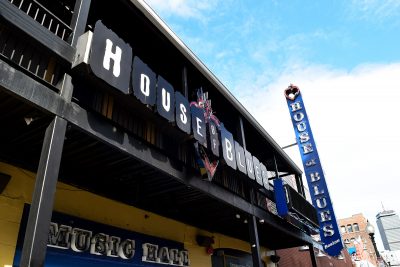The City of Boston entered a modified version of Phase Four, Step One of the State’s COVID-19 reopening plan Monday, allowing certain heavier-contact activities to open at a reduced capacity.

The move comes with increased citywide vaccinations and a decrease in new COVID-19 cases, according to a release by the Mayor’s Office.
“Since the beginning of the pandemic, our response to COVID-19 has prioritized public health, while recognizing the need to protect the economic wellbeing of our businesses and residents,” former Mayor Marty Walsh stated in the release. “It’s incumbent on each of us to stay vigilant, even as we reopen more parts of our economy.”
Under the modified version of reopening, public gatherings will be capped at 60 people indoors and 100 people outdoors — lower than the state’s capacities of 100 people indoors and 150 people outdoors.
Private gatherings, however, will remain capped at 10 people indoors and 25 outdoors.
A full Phase Four reopening will not occur until the Boston Public Health Commission calculates a citywide testing positivity rate under 2.75% for two weeks consecutively, according to the press release.
Caitlin McLaughlin, director of media relations at the BPHC, wrote in an email that this number “will show us a trend that things are moving in the right direction.”
Outdoor and indoor stadiums, indoor performance venues, overnight summer camps and certain live entertainment in restaurants can resume operations with sector-specific gathering limits.
Additionally, potentially contact-heavy indoor activities such as laser tag, escape rooms, roller skating, trampolines and obstacle courses may resume operation at 50% capacity.
“We’re eager to reopen, but obviously we don’t want to add to the problem,” said founder and CEO of escape room Trapology Boston Jason Loeb. “We will open in a manner that we feel is safe and consistent with state and CDC recommendations for safe reopening.”
Despite the circumstances surrounding the pandemic, Loeb said he plans to keep patrons safe by not allowing strangers to play together and continuing to implement rapid sanitation techniques such as the use of electrostatic sprayers.
“If and when we reopen in the near future, we will keep things as we’ve always done them during the pandemic, to ensure that we’re taking responsibility,” Loeb said. “I think it will be some time before we can actually shed those new standard operating procedures.”
Loeb added that Trapology received government aid to help them stay afloat during the pandemic, but they and other small entertainment businesses felt overlooked at times.
“There’s been a lot of focus on helping industries that are more visible and much larger scale,” Loeb said. “Small immersive entertainment companies such as ourselves and other smaller businesses and less visible industry segments got a little forgotten.”
But not all businesses and venues that can immediately reopen plan to.
Tanglewood, a venue owned and operated by the Boston Symphony Orchestra, will not reopen until the summer, according to a Friday press release by the BSO.
“The pandemic still represents a dynamic, unpredictable situation and there are many layers of planning and investment necessary for a reopening model that best ensures the health and safety of everyone involved, including the orchestra’s loyal audiences,” Bernadette Horgan, director of public relations at the BSO, wrote in an email statement.
McLaughlin added that a safe economic reopening requires continued caution.
“We have said from the beginning that we cannot have an economic recovery without a public health recovery,” McLoughlin wrote. “We will reopen slowly and cautiously so we can continue our economic recovery.”
Loeb said he believed the phased reopening will have a positive effect on Bostonians’ morale, but the City could have more difficulty enforcing health regulations.
“People will start to get a feeling of some semblance of normalcy again, with the slow stage reopening,” Loeb said. “I think it will be very difficult to lock things down again after they reopen like this. Once people get a taste for what life used to be, I’m not sure if they’re going to give it up very easily.”
McLoughlin urged residents to keep up personal safety practices as the city reopens, since most won’t be eligible for the vaccine until next month.
“It is critical that everyone (including fully vaccinated individuals) continue to take steps to stop the spread of this virus,” McLoughlin wrote, “wear a mask in public, wash your hands often, watch your distance, avoid crowds and parties and continue to get tested regularly.”
Paul Beninger, associate professor of public health and community medicine at Tufts University, said the City was “taking a small step.”
“They’re waiting a sufficient period of time to see if it has an effect on the overall standpoint of positivity,” Beninger said. “That’s all they can do: Take a step, see what kind of response there is.”
As of March 16, 26.3% of Boston residents 16 or older have received at least one dose of a COVID-19 vaccine and 11.1% are fully vaccinated, according to a Friday report by the Boston Public Health Commission.
If vaccinations continue to increase, Beninger said the numbers might get “sufficiently close” to herd immunity.
“I’m very optimistic, more optimistic than I’ve ever been,” Beninger said. “I think we’re still in very, very good condition, and we’re continuing to move in the right direction.”

























































































































